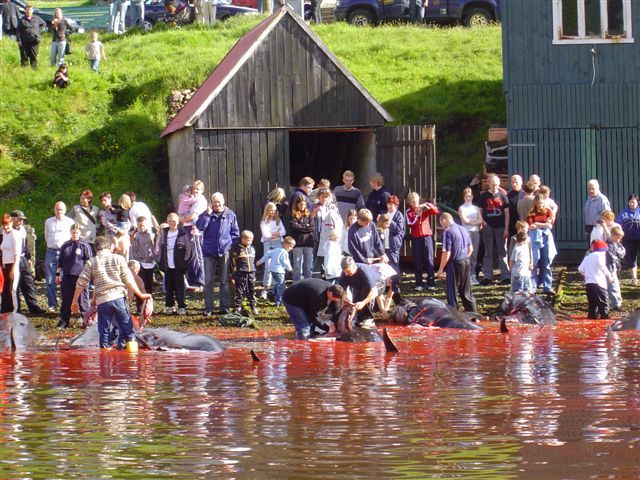The traditional grindadráp – the pilot whale hunt – is underway in the Faroe Islands. Animal welfare organisation Sea Shepherd has urged animal-lovers around the world to email Danish politicians to stop the the killing of the whales, but the barrage of outrage may not be having the desired effect.
Socialdemokraterne Mette Gjerskov took to Twitter to complain about the email carpet bombing.
“I am up to three protest mails per minute on the grindadráp. What do think think will happen other than me getting irritated?”
Gjerskov’s colleague Trine Bramsen has also been slammed with emails from anguished whale lovers.
“We stopped sending personal responses when we rounded email number 1,400,” she Tweeted.
Red seas
Anti-whaling activists have for years demanded that what they call the the “barbaric practice” of the Faroese whale hunt be stopped.
Photos and videos taken by Sea Shepherd supporters show the sea red with the blood of whales slaughtered after they were herded towards the beach by hunters in speedboats.
Wyanda Lublink, captain of the Sea Shepherd ship Brigitte Bardot, said that the Danish navy is on hand protecting the hunters.
‘It was perfectly clear to me that the Danish navy is here to guard the grindadráp, and that the slaughter would proceed with their full consent,” Lublink told local Faroese media. “How Denmark – an anti-whaling member nation of the European Union – can attempt to justify its collaboration in this slaughter is incomprehensible.”
Politicians in Denmark have generally said that the Faroe Islands should be allowed to continue the hunt and that whaling has been practised there for hundreds of years and is regulated by Faroese, not Danish, authorities.
Tradition or slaughter?
The annual hunt occurs on two beaches in the Faroes, one near the capital of Tórshavn. Locals said that they use the meat and blubber from the whales for food and oils.
Danish whale expert Carl Christian Kinze said that many of the claims made by the Sea Shepard group and its celebrity supporters like Pamela Anderson are simply not true.
“The criticism has been that the pilot whale population is on the decline,” Kinze told MetroXpress. “But the International Union for Conservation of Nature (IUCN) states that the stock can well withstand the Faroese hunt.”
There are estimated to be 128,000 pilot whales in the northeast Atlantic alone, and Faroeses hunters take about 800 whales per year.
The killing can only be done using a specialised blade and hunters must be licensed.
READ MORE: Pamela Anderson in Faroe Islands to stop the grind
Although claims have been made that the whales are killed for sport and that the meat is left to rot, supporters say that the meat is handed out free and represents about 30 percent of total meat production on the Faroe Islands.
Seven protesters have been arrested this week for allegedly interfering with the the hunts.














